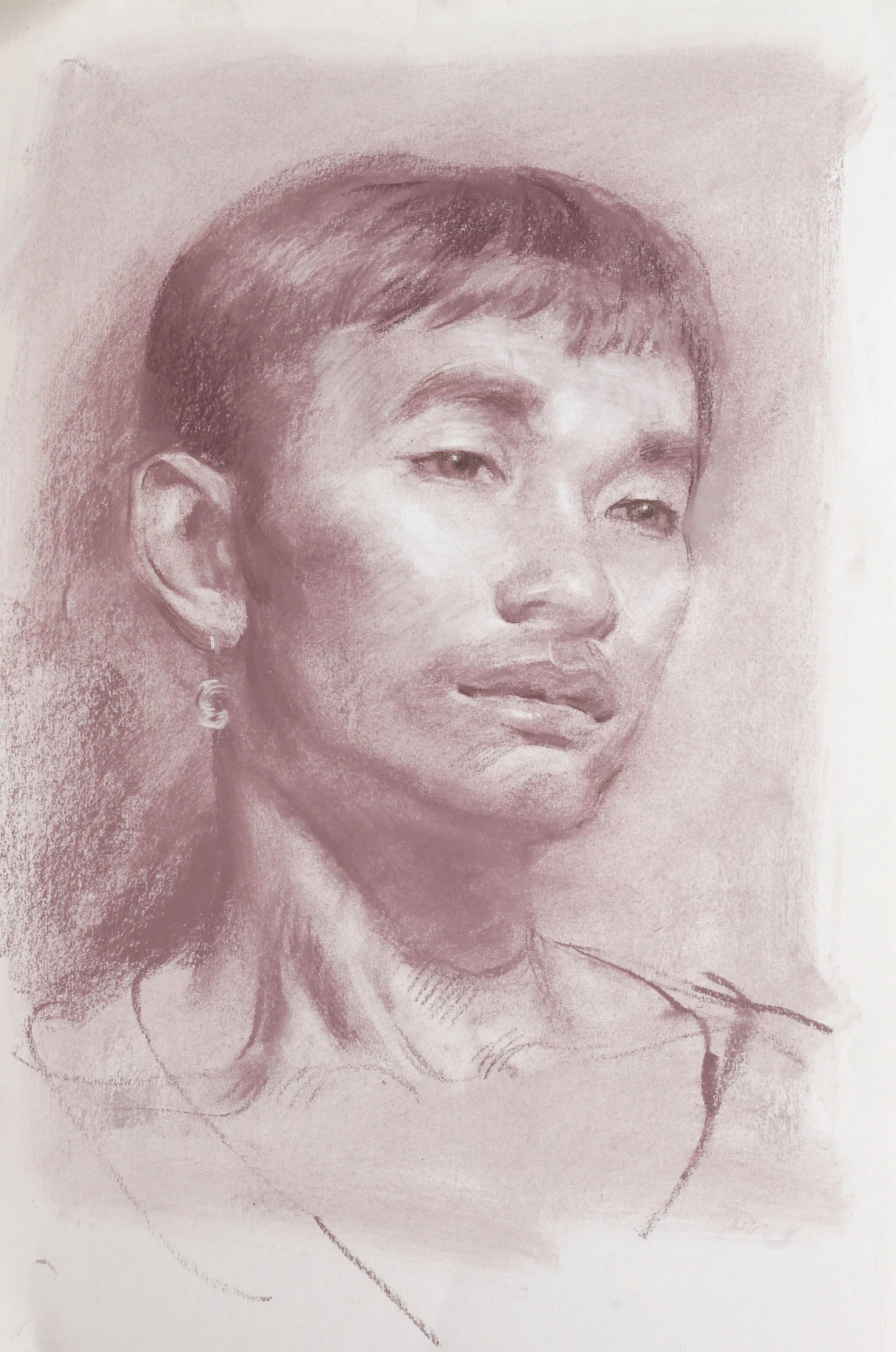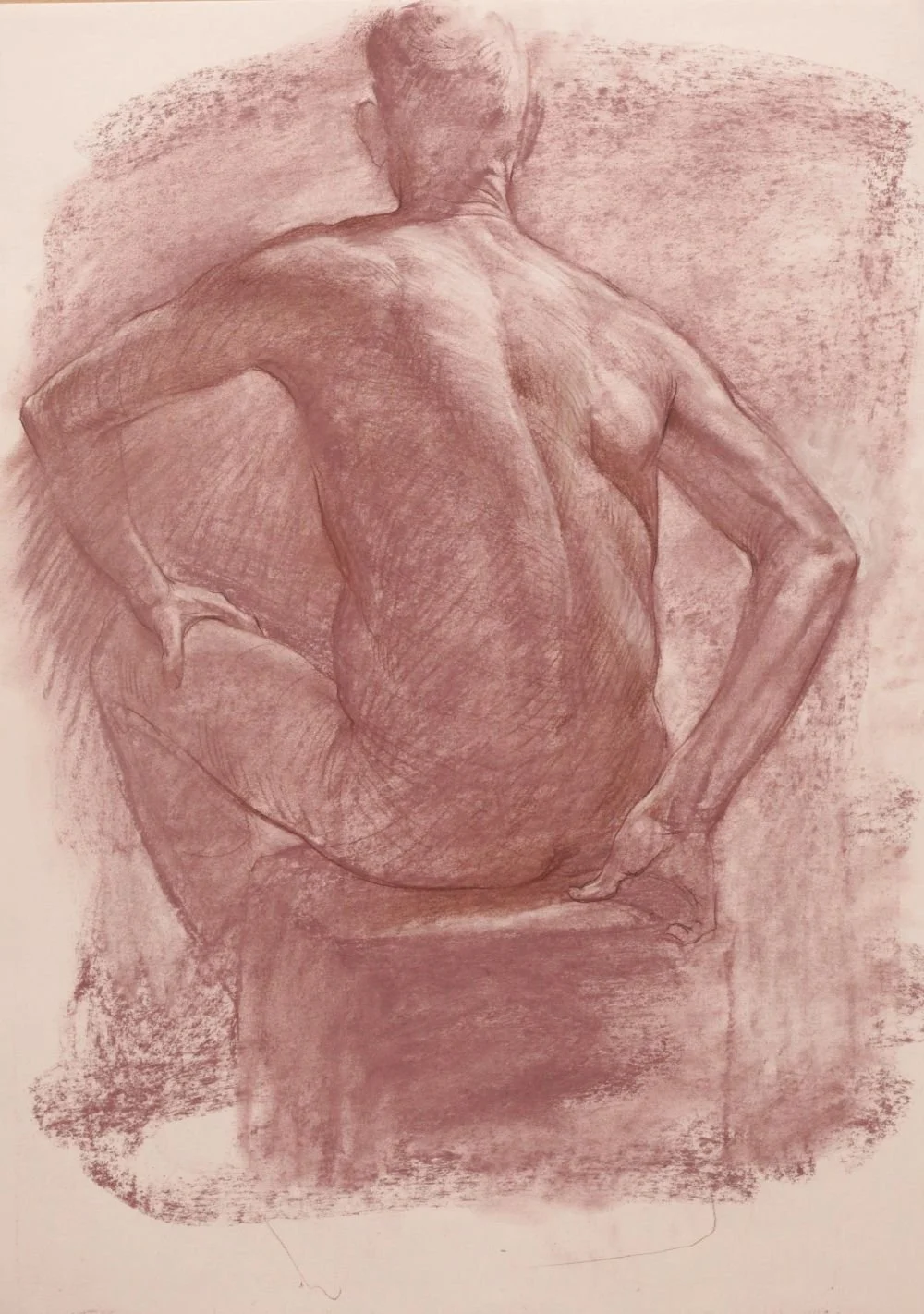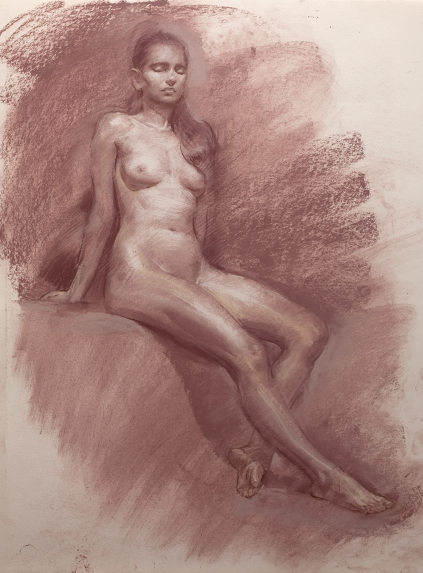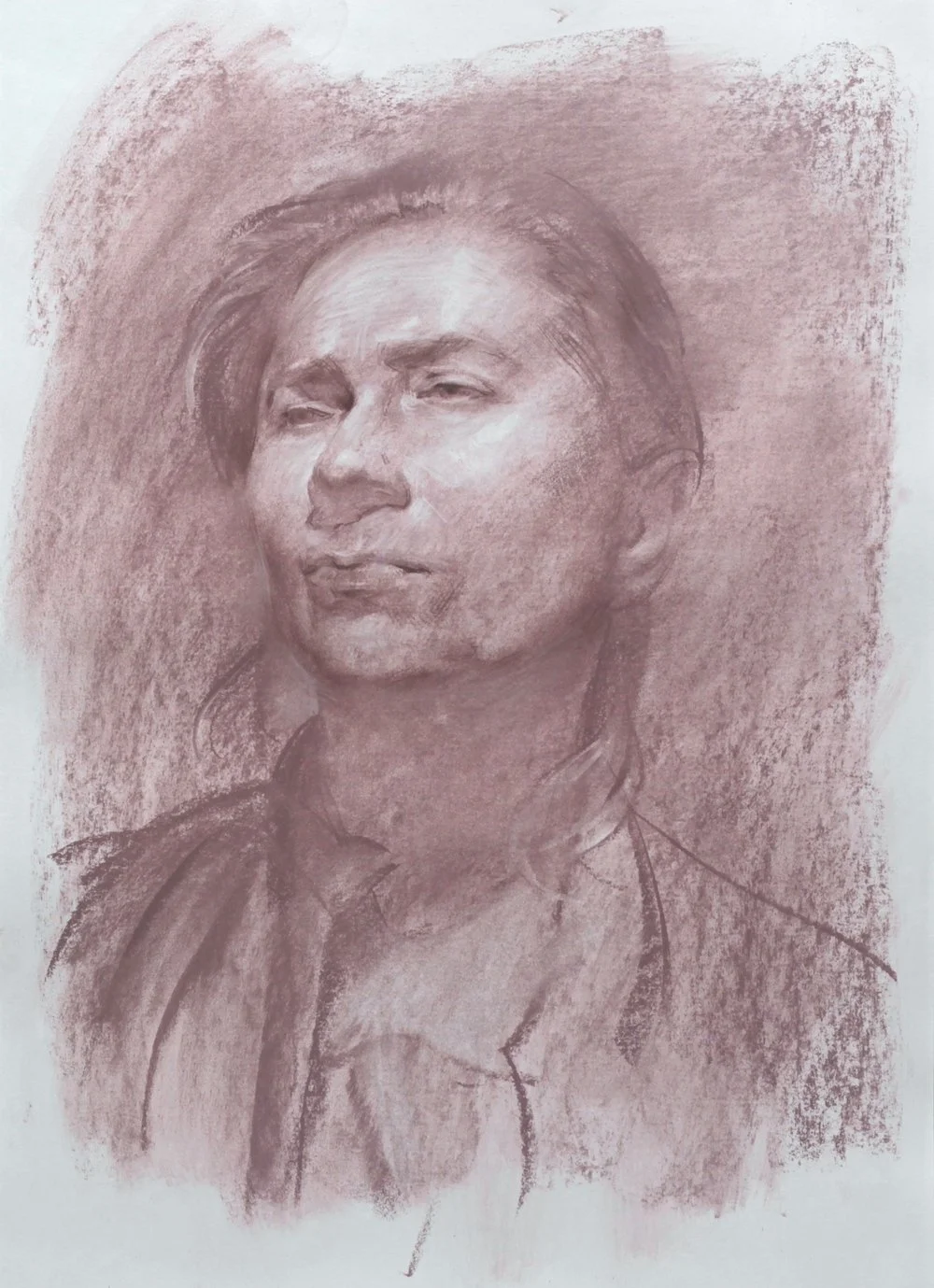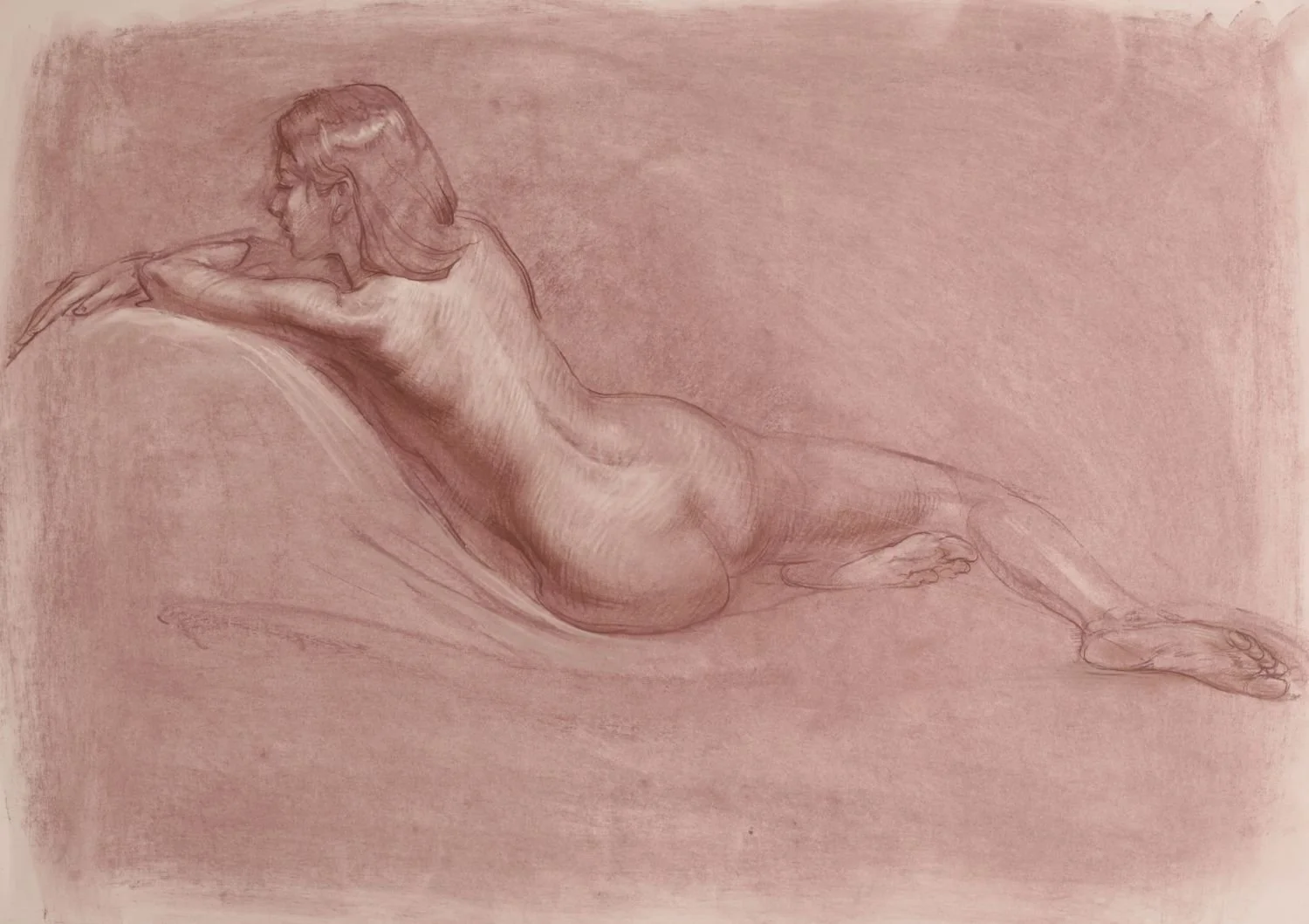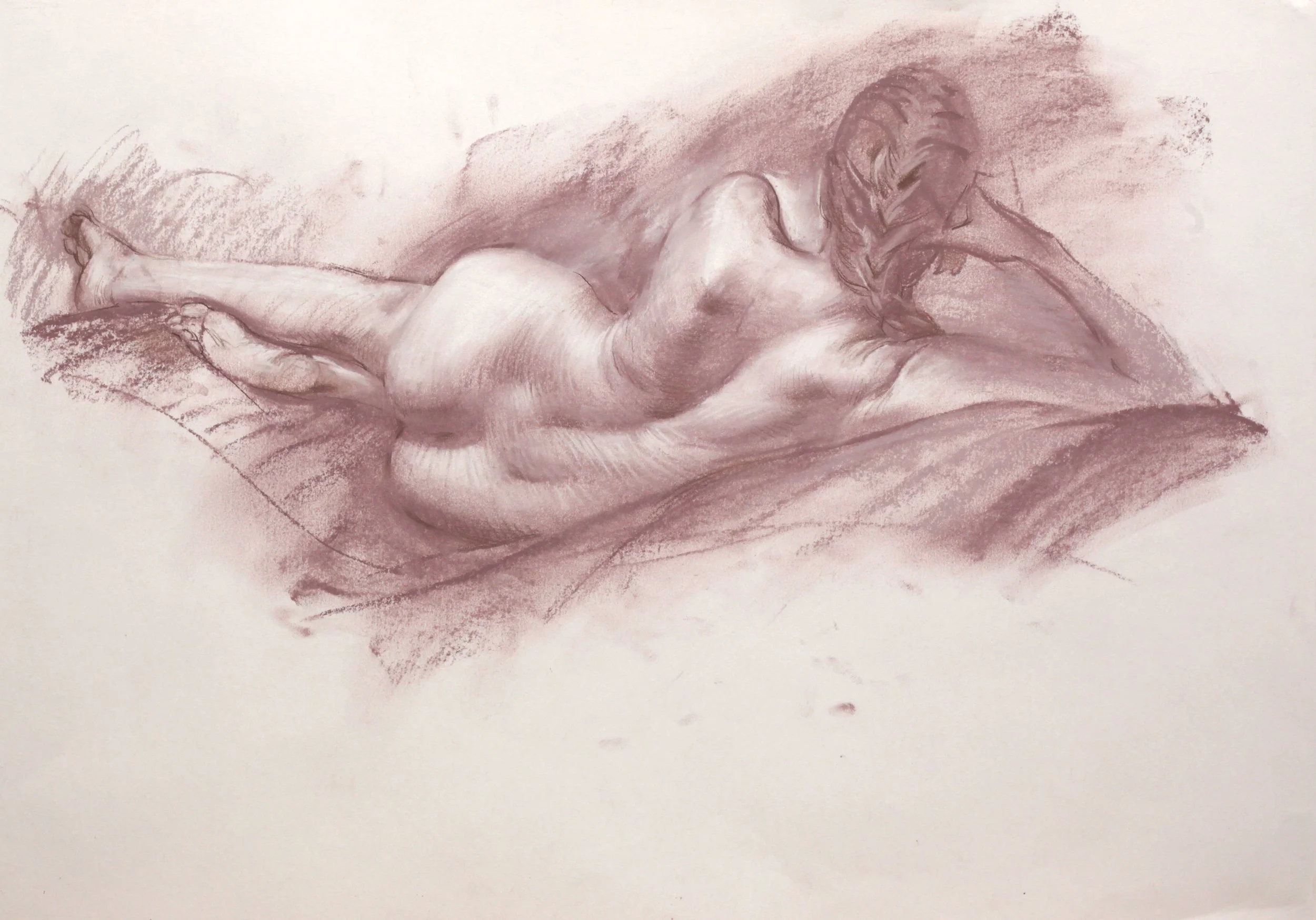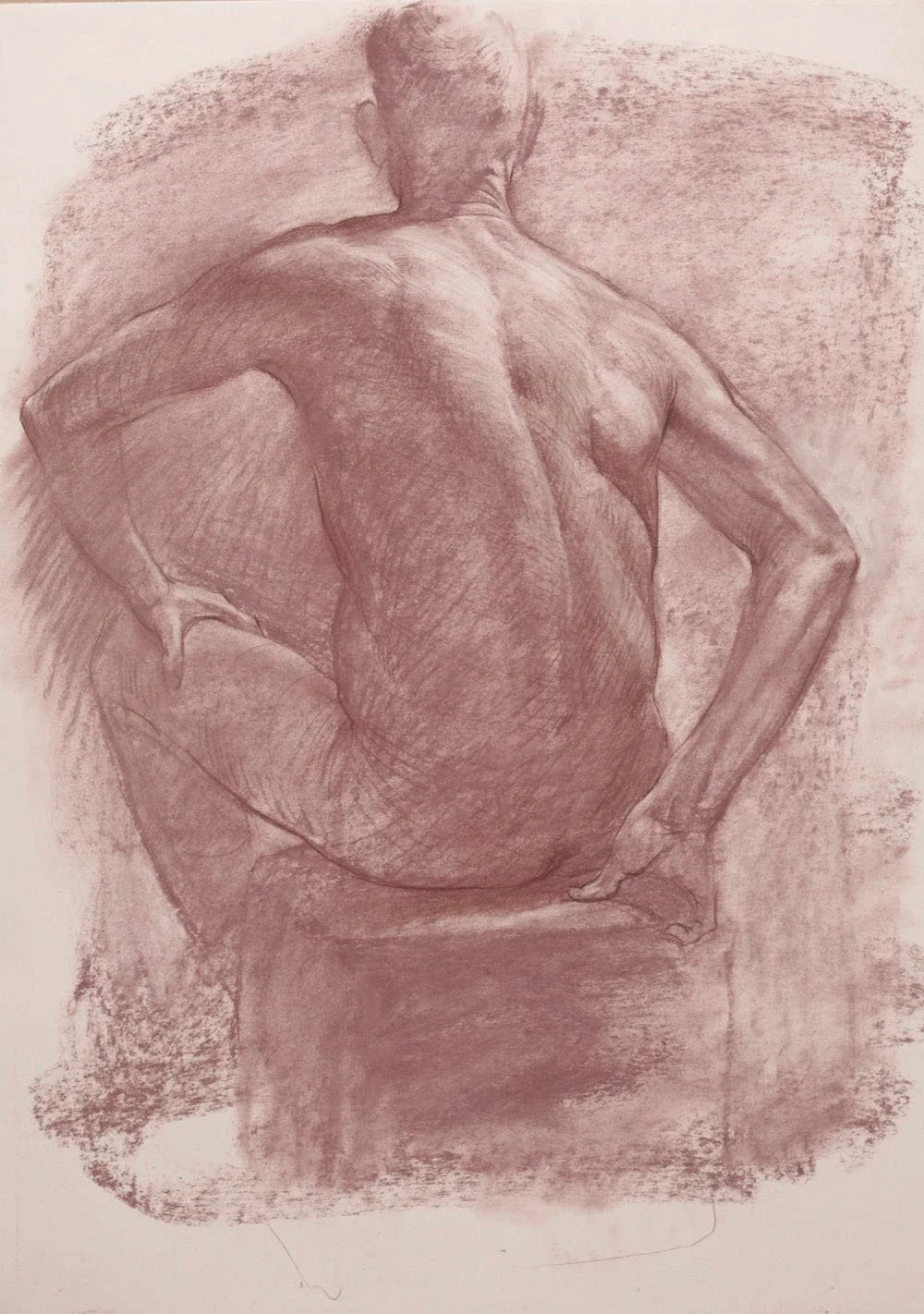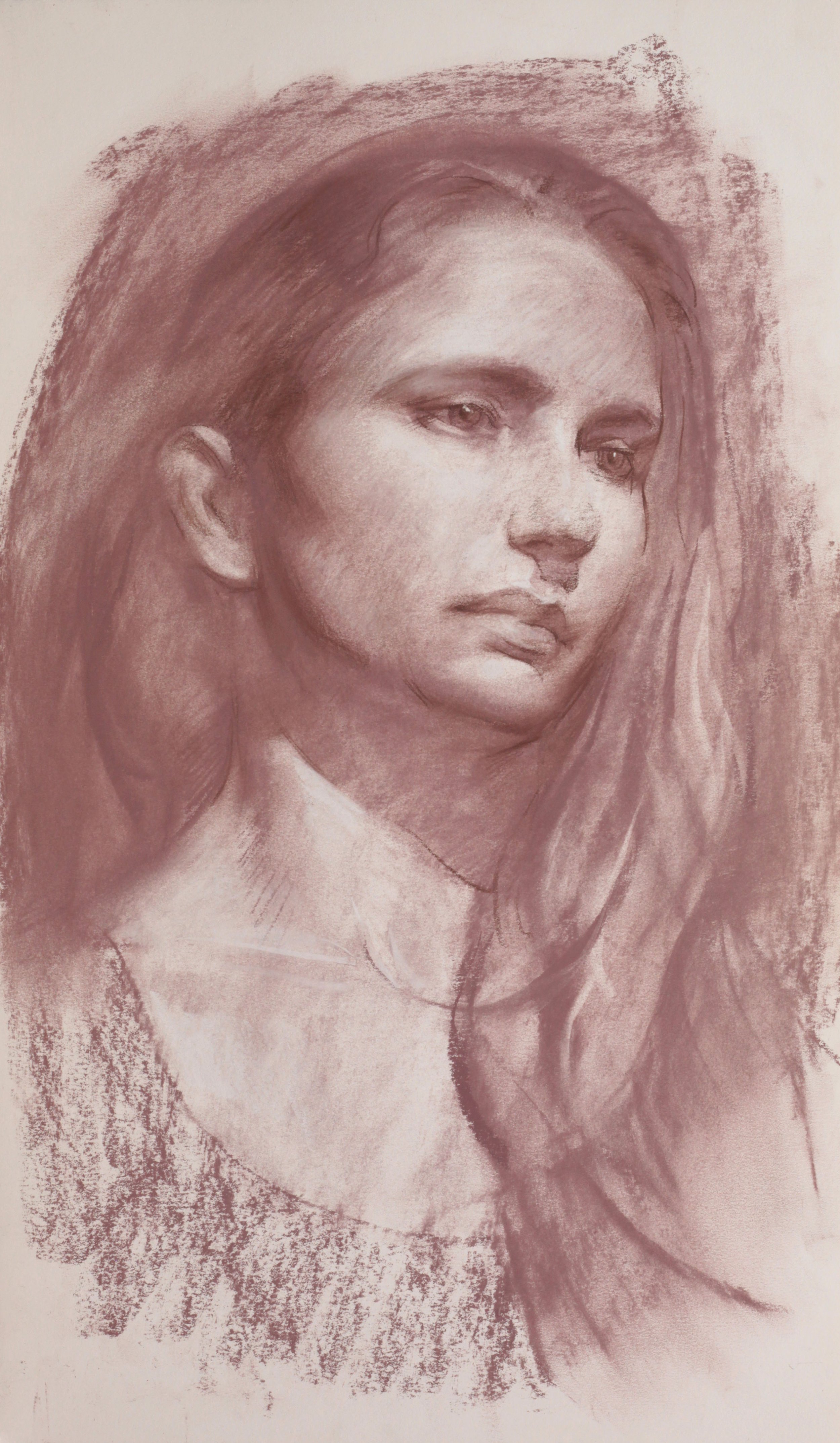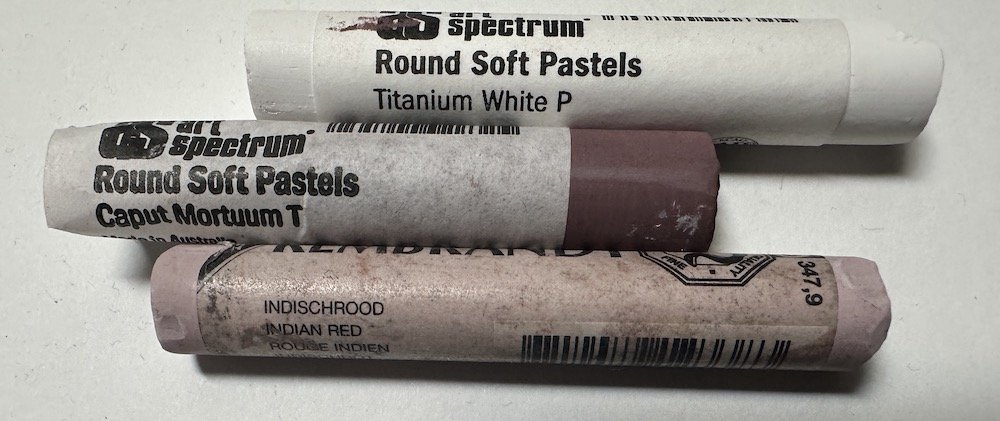Life Class Materials List
Harder pencils, smooth paper, about 4 hours
8B graphite, 2 minutes each
Soft pencil, smooth paper, 15 mins
Soft pencils, coarser paper, 20 mins
2 minute drawing, 6B graphite
CORE MATERIALS
6 sheets of A2 drawing cartridge or smooth bristol type paper per session for short pose session (eg 2 minute, 5, 10, 15 minute poses)
1 sheet plus a few for buffers underneath for portrait/long pose sessions
4B graphite
(Both these types of paper are available through my Local Customers Store - purchase by card online and pickup in class or purchase on the day in cash. I find the drawing cartridge, which has a little tooth, quite nice for creating soft broad marks with graphite or softer coloured pencil, and you can still get a sharp mark with the point. I find the smooth paper good for longer studies that we will do at the end of the term using harder pencils so that we can get more gradual, refined rendering.)
Drawing board and clips to suit A2 drawing cartridge (we have drawing boards in the studio but you might like to have your own for flat transport of your work.)
Graphite pencils - Hb, 2b/3b, 6b/8b (regular wood shaft or solid graphite eg progresso)
Kneadable eraser (optional: Monozero eraser - this is a fine rubber eraser in a pencil holder)
Sharpener or pen
OPTIONAL MATERIALS
Graphite block and smooth paper
Graphite block and smooth paper
Graphite Blocks - My preference is Grafcube by Caran d’ache (small or medium - these are lovely for gesture, creating broad, soft marks. When using a harder graphite block on a smooth paper you can get lovely smooth marks, or using on cartridge paper you can get a more textured mark)
3B graphite block on drawing cartridge
3B graphite block on drawing cartridge
Vine/willow charcoal
I suggest the fine sticks
Sanguine Conte chalk or Conte pencil
Can work well with a charcoal pencil for accents
Sanguine Conte chalk
Sanguine Conte chalk
Black Conte chalk on coarse paper, massed in with side of chalk then with lines picked out
Sanguine Conte Chalk + charcoal pencil
Prismacolour Terra Cotta (PC 944) on cartridge paper, 5 mins
Prismacolour Terra Cotta (PC 944) on cartridge paper, 15 mins
Prismacolour Terra Cotta (PC 944) on cartridge paper, 30 mins
Prismacolour Terra Cotta (PC 944) on cartridge paper, 10 mins
Prismacolour Terra Cotta (PC 944) on cartridge paper, 20 mins
Prismacolour Terra Cotta (PC 944) on cartridge paper, 20 mins
Single coloured pencil: Dark mid tone in an earth colour - my favourite is Prismacolour Terra Cotta (PC 944) - coloured pencils don’t tend to smudge but on the other hand are difficult to erase.
I like to sharpen with a knife and sandpaper for a long point or use a pencil sharpened that makes a very long point, then use sandpaper to very slightly round the tip - this allows a slightly softer mark, as well as a sharp one when pull along the page.
This is probably the closest thing I have drawn with that can achieve a bit of an old master effect.
Set of three coloured pencils: a light, medium and dark tone in similar hue range - my favourite for this are:
Prismacolour beige (pc997)
Prismacolour burnt ochre (PC943)
Prismacolour dark brown (PC946)
(This allows you to vigorously lay in initial, longer marks in the lighter tone, move to the mid tone to refine and still have the darker colour to pick out accents or finalise your marks)
Prismacolour beige (pc997)
Prismacolour burnt ochre (PC943)
Prismacolour dark brown (PC946)
Prismacolour beige (pc997)
Prismacolour burnt ochre (PC943)
Prismacolour dark brown (PC946)
Prismacolour beige (pc997)
Prismacolour burnt ochre (PC943)
Prismacolour dark brown (PC946)
Prismacolour beige (pc997)
Prismacolour burnt ochre (PC943)
Prismacolour dark brown (PC946)
Pale green pastel and Sepia 617 pastel pencil by Conte on cartridge paper
Caput Mortem V554 by Art Spectrum, Burnt Umber 409,10 by Rembrandt, Sepia 617 pastel pencil by conte on smooth Bristol paper
Rembrandt Burnt Umber 409,10 and Sepia 617 pastel pencil by Conte on cartridge paper
Caput Mortem V554 by Art Spectrum, Burnt Umber 409,10 by Rembrandt, Sepia 617 pastel pencil by conte on smooth Bristol paper
Pastel and pastel pencil:
A similar effect to using a range of coloured pencil can be created using a standard pastel in a light shade (eg Rembrandt Burnt Umber 409,10, a kind of pale cream) plus a pastel pencil in a dark shade (such as Sepia 617 by Conte a Paris)
These drawings were done in a combination of shades of caput mortem, pale indian red and titanium white soft pastels (brand Rembrandt or Art Spectrum)
White media for use on midtone paper: For anyone who already has experience with long term (ie more than 3 hours) studies from the model on white paper, you might like to try working on a midtone paper with a dark and light pencil. Graphite can be used along side a white coloured pencil such as a Prismacolour White/Blanc (PC938) because both are waxy. On the other hand, a charcoal pencil can be used with white charcoal or a white pastel pencil such as General’s, because both are not waxy. If you try to mix a waxy with a non-waxy media, you will find that the non-waxy won’t want to make a mark on top of the waxy one.
Non-waxy pencils: Charcoal pencil, pastel pencil and white pastel pencil on hand toned paper (Sumi Ink diluted with water)
Waxy-pencils: Dark and white coloured pencil on hand toned paper (Sumi Ink diluted with water)










